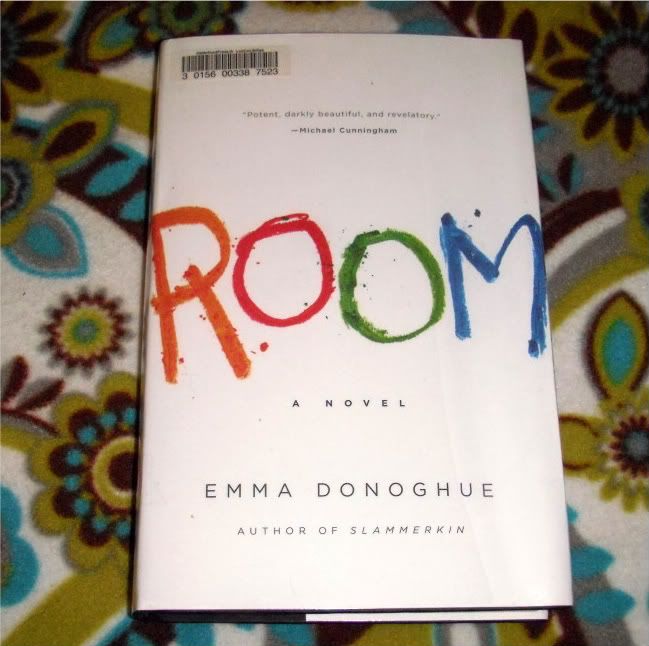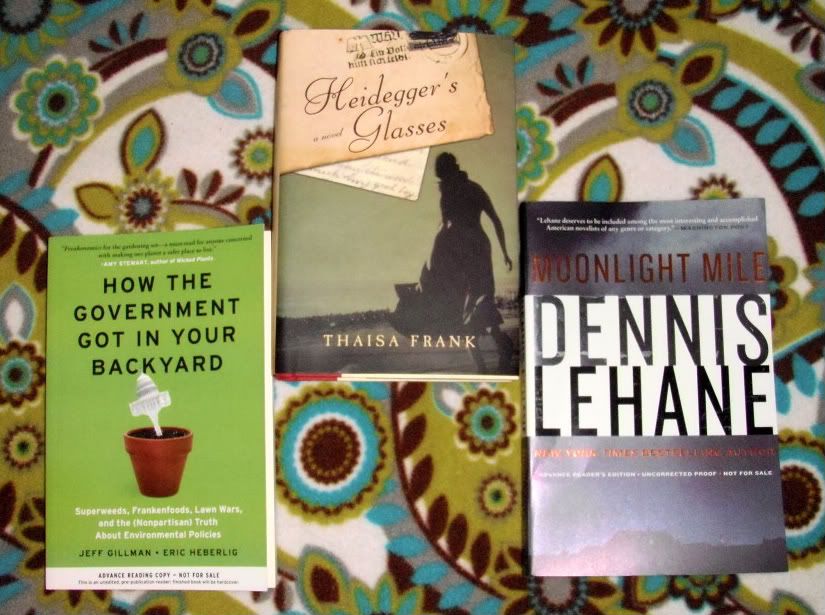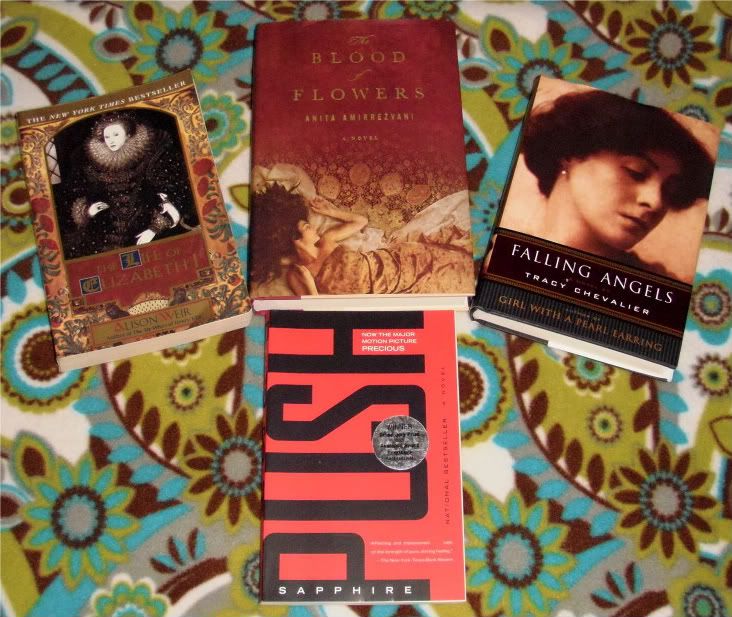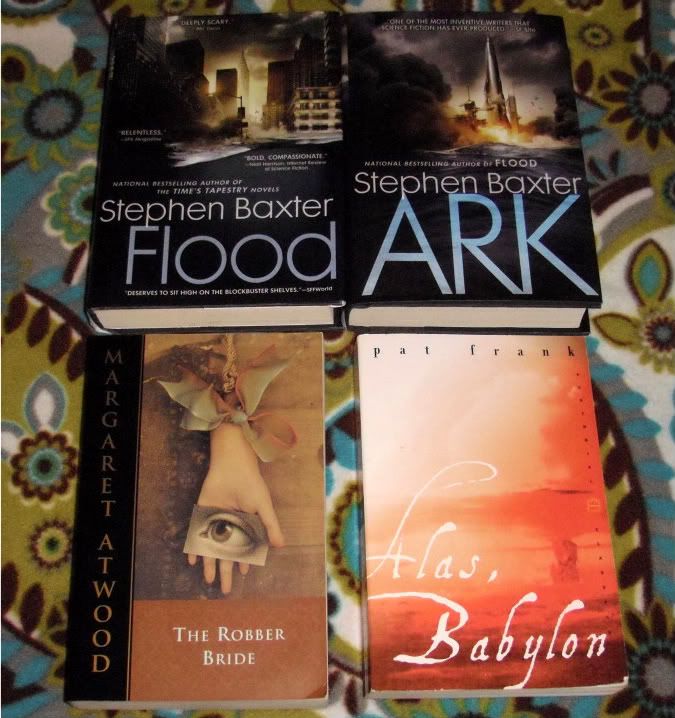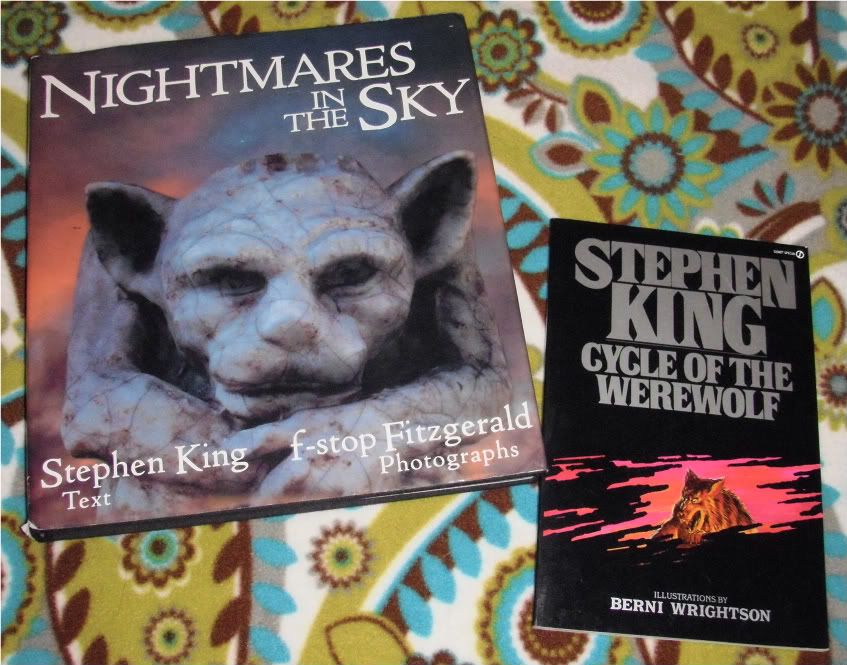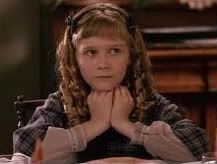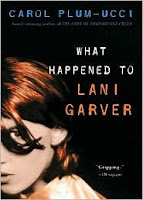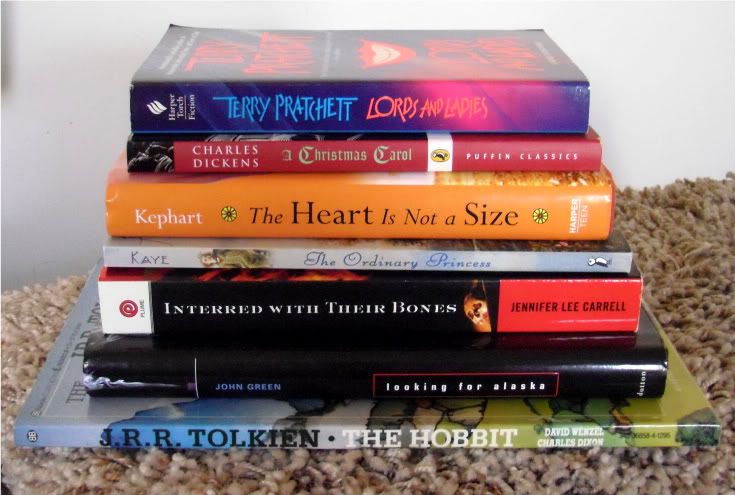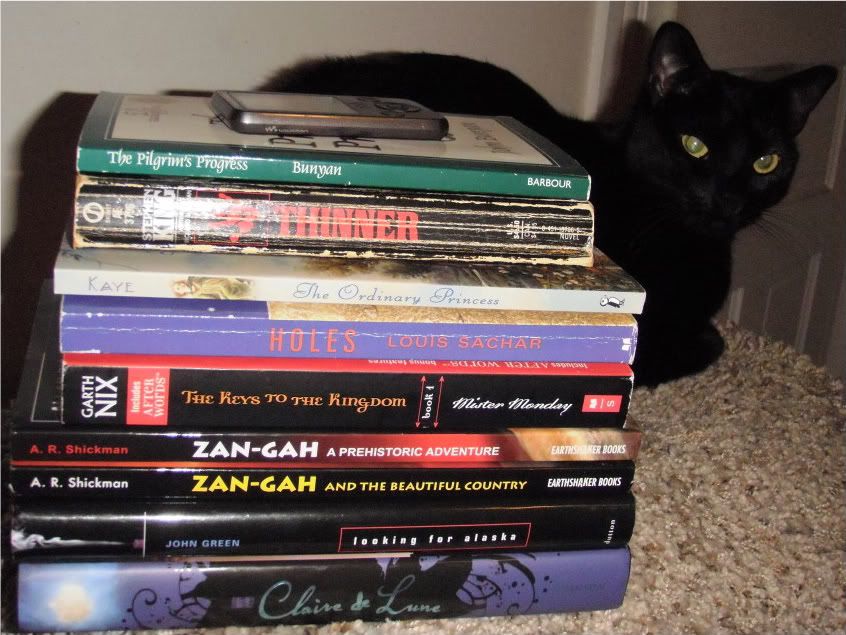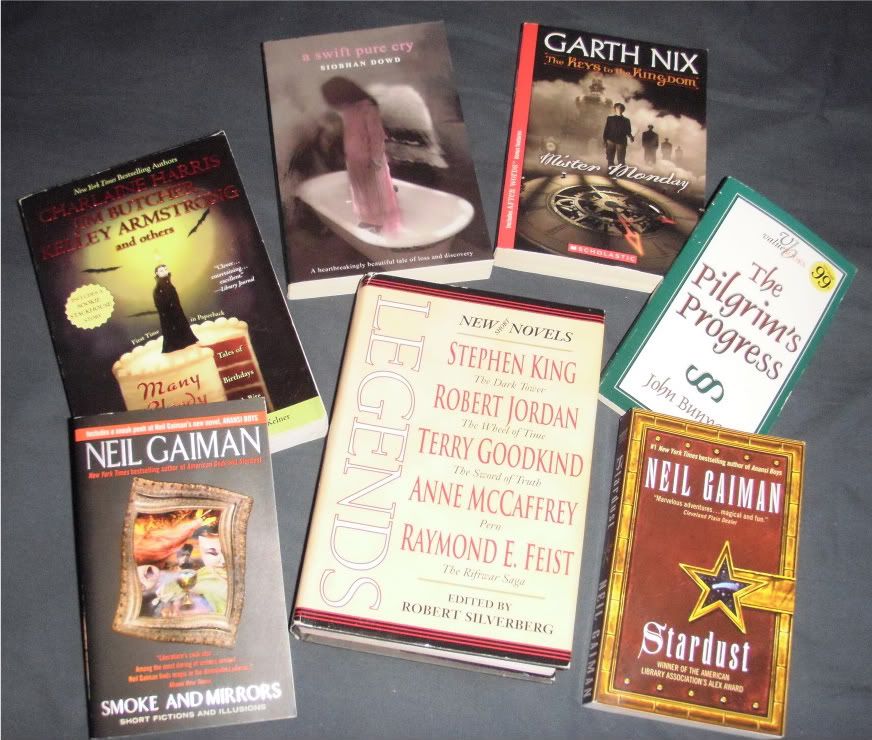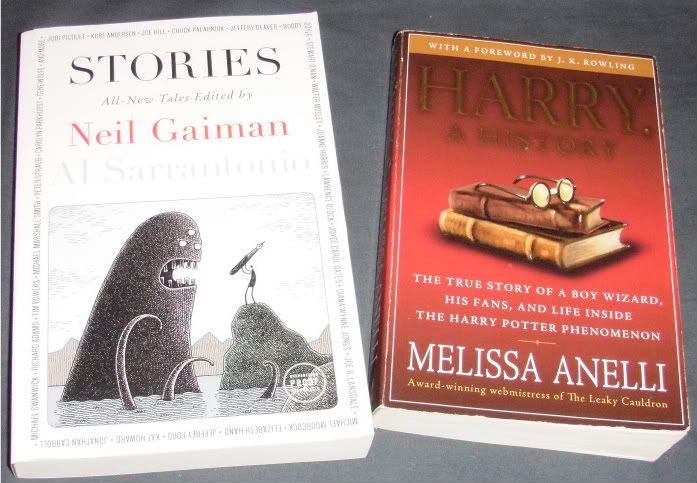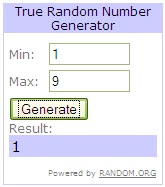 Friday Flashback is hosted by Jen @ The Introverted Reader.
So I thought that it would be kind of appropriate to post this review now, since Banned Book Week was not very long ago, and since the 7th Harry Potter movie is coming out soon. I received this book from my friend Kandice, whose son was given the book by some mysterious person at his school. If there's anything I dislike, its creepy people spreading ignorance in schools. Rather than encouraging intelligent thought and analysis, Abanes encourages people to hide behind fear and ignorance in order to avoid anything they don't understand.
So without further ado, my review, which was written way back in February:
Friday Flashback is hosted by Jen @ The Introverted Reader.
So I thought that it would be kind of appropriate to post this review now, since Banned Book Week was not very long ago, and since the 7th Harry Potter movie is coming out soon. I received this book from my friend Kandice, whose son was given the book by some mysterious person at his school. If there's anything I dislike, its creepy people spreading ignorance in schools. Rather than encouraging intelligent thought and analysis, Abanes encourages people to hide behind fear and ignorance in order to avoid anything they don't understand.
So without further ado, my review, which was written way back in February:

Ahh, right. Where to start... I have so much to say! I wish that you could all see my notebook. Aside from my atrocious handwriting, it is 12 full-size pages filled with my scribbled, jotted, many underlined thoughts, reactions and questions, as well as quotes, semi-quotes, references to quotes and page numbers for still more quotes.
It's not pretty. Really. But it WAS necessary. So many of the things that I jotted down had me rolling my eyes, thinking "Is this guy SERIOUS?". I just read this entire book, and I still don't understand most of his claims, arguments, assumptions and conclusions. I like Harry Potter, so I am obviously one of the "undiscerning" readers mentioned in Douglas Groothuis's foreword, in which he proclaims that I am about to read a "rare voice of sanity, reason and biblical discernment" regarding the Harry Potter books. Hmm. Well. Good thing he hasn't started off by annoying me or alienating me as a reader... Oh. Oops.
Anyway, offended by being called incapable of reason and insane before the book even starts, I still tried to read it objectively. From what I could see, Abanes's case comes down to several extremely repetitive points:
1) The setting of the "real world" makes it difficult for kids to differentiate between fact and fiction.
Apparently, because this is a fiction book that takes place in the United Kingdom where people actually live or can visit, it makes it nearly impossible for the reader to understand that it's not real. He makes reference to comments on message boards and letters (etc) which have kids saying things like "Wow! I wish I could do magic..." or "I wish I could go to Hogwarts..." and the like, and claims that these kids are dangerously close to becoming official occult followers. Which is utterly ridiculous and a huge logic leap. Kids whimsically wishing for something doesn't imply that they can't understand it's not real. I used to WISH I had a real My Little Pony to ride, but I didn't actually believe they WERE REAL. Kids know how mundane and normal and boring their life is. School. Homework. Bed. Repeat. They have no control over anything at this point - parents decide their lives. They just wish for some fun.
And, kids are much, much smarter than they are given credit for, in my opinion, although apparently not in the author's. Abanes seems to think that kids who read and like something will then rush off to try it with no thought. And while that may be true of some people, it is untrue of most. He gives an example in his book (after talking about how wormwood is used in HP and is an actual ingredient in absinthe) of someone looking up a recipe for absinthe online, making it and getting sick. He writes it in such a way as to insinuate that the person who did this was somehow influenced by the wormwood mention in HP. Another big leap. He also seems to forget parents, even while writing a book geared toward them. It is a parent's responsibility to teach their children, not JK Rowling's.
He goes on later in the book to say how Christian writers CS Lewis and JRR Tolkien both wrote fantasy stories involving magic, but these are OK because their magic is not HUMAN magic, and it is clearly in a fantasy world.
2) The magic described and portrayed in HP is actually representative of the Occult, which is denounced repeatedly and harshly in the bible.
Abanes's argument here seems to be that because JK Rowling researched and used real modern and historical practices, ideas, references, and substances (like wormwood above), as well as mythology and legend etc, that she is "thinly veiling" her belief in the occult, and not only introducing children to it, but grooming them towards it.
His "biblical" definition of occultism is extraordinarily all-encompassing, and ranges from astrology to conversing with spirits as a medium. Anything, essentially, that tries to understand or influence the world or ourselves that is NOT Christian in nature or done for the glory of God, is defined as being of the occult, and therefore dangerous and evil. He references many passages in the bible which denounce occultism, but never answers the ever present "WHY?" question. But hey, rules are rules, and the rule-maker need not explain, right?
Moving on, Abanes makes another huge leap in talking about the pets in HP, stating that they are familiars to their owners. Witches' familiars are defined here as a "low-level demon" in the assumed shape of an animal. He says, "Mrs. Norris, owned by the school's caretaker, exhibits some of the characteristics of a familiar. In Book III, Hermione gets her own familiar -- a cat named Crookshanks." He then quotes a renown Wicca practitioner, Starhawk, on the tradition of familiars, and then quotes a passage from "Witchcraft In England" which rehashes again what familiars are and confirms (again) the belief that witches used them in "the later centuries of [the:] witchcraft-belief". Abanes then says,
"Obviously Harry and his friends are indeed making contact with the spiritual world." What? How is that obvious?
Abanes did include a very small section each to explain Paganism, Wicca and Satanism. I think he kind of shot himself in the foot if he was trying to turn people away from these, though. He failed miserably at making them unattractive, and to be honest, actually succeeded in piquing my interest in learning even more about them. Pagan and Wicca followers have a "reverence for the Earth and all it's creatures, generally see all life as interconnected, and strive to attune one's self to the manifestation of this belief as seen in the cycles of nature." Ooooh! DANGER! DANGER! (Sorry, I couldn't resist.)
I'm not going to go into the major points and details, but it is interesting, and I would recommend reading about them yourself. I did see a lot of my own "worldviews" represented in Paganism and Wicca, such as my relativism (a view that ethical truths depend on the individual or groups holding them
-www.Merriam-Webster.com), which essentially means that what is good for me is not good for everyone else, and what is good for others may not be what is good for me. I'm OK with that. Abanes is not, and apparently has a problem with personal and private beliefs not in accordance with his own. He seems to feel that his way is the only way.
He did portray Satanism as being "bad", although he made clear that modern Satanism is not technically worship of Satan, but worship of the individual. Satanism "emerged when various aspects of all these (pagan, et al) traditions were blended together by persons seeking to fight Christianity's growing theological and moral influence [between 400s -1600s A.D.:]." (I got a real chuckle out of that. Apparently the Crusades and mass murders in the name of Christianity represent the "moral influence" of the faith. Best. Euphemism. EVER.)
He mentioned Sean Sellers, who was physically and sexually abused, neglected, and abandoned as a child and teen, who found himself getting involved with Dungeons & Dragons as an outlet, and later Satanism. There he found acceptance and understanding, until things started getting too deep and cult-like, which is very different from the religion started by Anton LeVey. Sellers, fearing for his sanity, reached out repeatedly for help... his parents, their Christian ministers, church run support groups, etc, and they turned their backs on him each and every time. In the end, he immersed himself in Satanism completely, and ended up murdering three people, being arrested, sentenced to death, and becoming a born again Christian in prison. Abanes blames the D&D as the "gateway" to Satanism for his downfall, but fails completely to mention the many, many people who let Sellers down when he needed help the most. (This is just one of many examples of how Abanes cherry-picks his arguments.)
3) Vulgarity, profanity and general lack of biblical morality in the Harry Potter books. (Characters lying, stealing, cheating, cursing, drinking, etc. And the amount of "gore" in the books, including Nearly Headless Nick and the Headless Hunt.)
His point is that he doesn't feel like there is enough delineation between "good" and "evil". The good guys should be all good, or if they falter, they should pay for it immediately. Bad guys should be all bad, and should absolutely pay and fail.
But MY argument is that the world, and life, is rarely delineated in such stark, black and white terms. Good people do bad things, bad people can do good things, it's the way of the world. And the real world doesn't always mete out appropriate punishment for misdeeds based on a religious belief. The world is impartial... Religion is not.
Abanes's first example of the immorality of the children is that they disobey rules. I think this is the main stick in his craw, because so much of organized religion centers on obeying without question. He also really has a problem with the word "git", which is a derogatory word that means idiot. He claims that this is profanity, which I guess is subjective, but to me, it's slang, not profanity.
Children are children, and they ACT like children. They disobey, mouth off, curse, treat each other unkindly, hold grudges, make enemies, make up, cheat, etc. But even as they do so, they are learning. Holding them to adult standards of behavior is unrealistic and unfair, especially a religious standard that was never intended to be in the equation at all.
He also repeatedly laments the increase of "New Age Spiritualism" in modern times, causing what he calls a "Post-Christian" world, which is helped along by books, movies and media, namely "occult" books like HP, etc. He repeatedly inserts statistical data, which in itself is suspect to me, as 7 out of 8 people know that 60% of all statistics are made up on the spot (as this was... :P), so... I'm a little wary of just accepting his claims. He acts like popularity itself is cause for alarm. More than once, Abanes seems to indicate that because Rowling was poor before she wrote Harry Potter that her popularity was helped along by, if not evil, definitely occult forces. He also seems to take issue with the fact that JK Rowling has not publicly made known her personal religious beliefs. As if it matters. Her beliefs are personal, and her books are fiction. They have nothing to do with each other in my mind and opinion, but Abanes thinks that because she's not proclaimed her Christianity, that she's probably an Occultist. Again with the black and white, 'with us or against us' theme.
I think that's what bothered me most about this book. I tried to read it objectively and fairly, even though I myself am agnostic, but so many of his arguments are just statements without any basis in fact. Comparisons which are... ridiculous. It's like he was writing this for people who think exactly as he does, but just didn't know it yet, and who wouldn't question his claims. At the end of the book, he gives practical advice for Christians (who should now have many, many concerns about the book) to go forth with gentleness and kindness when discussing the book(s) with others that they feel the need to educate. Good advice, yes, because I do not want someone calling me a "heathen" for enjoying these books, BUT this book only succeeded in making claims, not proving them.
Not only that, but as I mentioned before, he clearly, blatantly and shamelessly picked around the things that he didn't want to address, and beat into the ground the few points he did.
For instance, he mentions CS Lewis's Narnia series, and *spoiler* Aslan sacrificing himself for Edmund */spoiler*, but Lily's own sacrifice for Harry goes without mention. And he's not unaware, just to be clear, as he quotes Voldemort telling Harry that his mother died to save him, and that she will have died in vain, as well as Dumbledore's explanation of Lily's love sacrifice. He just ignores the sacrifice of the one, and lauds the sacrifice of the other, because it suits his theme.
He claims that the HP books are vulgar and full of violence etc, and that they are inappropriate reading material for children, yet ignores the fact that there is ridiculous amounts of violence and death in the Lord of the Rings trilogy. And the bible, for that matter.
He also derides the use of runes in HP, but makes no mention of the fact that Gandalf used them in Lord of the Rings. Apparently that's OK because, while runes are definitely "Real Occult", LOTR was not set in the real world.
I could go on and on, (12 pages of notes, remember?), but I think this is enough to get my point across. In the end, it seems like Abanes is saying, "Christianity is right, and anything that doesn't shout that from the rooftops is wrong. Period. End of story." That's an opinion, but it doesn't make it the right one. I think people are entitled to believe what they choose, just as readers (of all ages) are entitled to read and enjoy what they choose. Parents have a responsibility to talk to and teach their kids right from wrong, and morals and ethics, etc. That is not the job of the Harry Potter books, or ANY books. Religious texts are wonderful and useful to many people, but that does not mean that fiction and entertainment should seek only to rewrite/retell them.
Read and make up your OWN mind about books. :)
